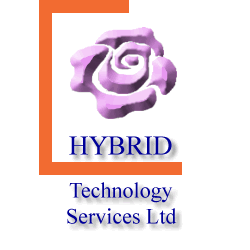
Frequently Asked Questions

I have a fluoro-polymer that I am trying to bond to, can I send a sample for testing and how much does it cost?
Plasma processing is an excellent way of improving bondability to fluoropolymers. De-fluorination of the polymer's surface takes place but the bulk properties of the material remain unchanged. The only criteria is whether the material is vacuum compatible, and whether the size of the sample will fit into a plasma reactor. HTS's charges for sample working are £35.00 / hour machine set up, and £35.00 / hour for processing time.After plasma surface engineering what special handling requirements are necessary?
After plasma processing surfaces are truly atomically clean. It is therefore essential to observe good handling practices particularly for bonding applications, to prevent re-contamination. We recommend minimal handling and if necessary using lint free cotton or polythene or surgical rubber gloves. Components should be carefully packaged and protected from environmental pollution.
How long does surface radicalisation last?
Surface radicalisation occurs when radicals are formed or deposited on the surfaces during plasma processing. Their reactive state and environmental conditions define their active life, which can vary from a few hours to many months. Good packaging and handling practises for the plasma treated components is important, to minimise the effects from atmospheric moisture, dust, gases, and vapours, (such as silicones, mould release agents, cleaning solvents), and UV light, all of which can degrade the radicals. Subsequent unpackaging , handling and processing should be conducted within a compatible environment.
I am involved in a commercially classified project but would like to have HTS and Nordson involved helping develop new plasma processes. Would HTS and Nordson consider signing a non-disclosure agreement to protect confidentiality?
HTS and Nordson Plasma Group consider it imperative to protect our customers' interests. If a non-disclosure agreement is required then we would be happy to consider it.
I am interested in sending some printed circuit boards for subcontract plasma desmear, what information do I need to provide and how fast can they be turned around?
In order to process circuit boards accurately HTS has developed proprietary software to derive the correct plasma process. It is necessary to include as much board data as possible when shipping PCB's for subcontract work. HTS standard form 411.01 can be obtained by fax, which details all of the information that we require.
If we receive 24 hours' notice, the completed form 411.01, and the PCB's arrive with us before 09:00 AM on a normal working day, then under our Prompt Service we will process and despatch the boards the same day for arrival at the customer's location the following working day. Using our Standard Service the boards would be processed and despatched from HTS the day following their receipt.
Please could you explain the subcontract charges for the plasma desmear of printed circuit boards?
HTS's vacuum plasma treatment of PCB's for desmear, etchback and adhesion promotion is a batch process, and charges are levied per run. Chamber loading is determined by the board materials, the board size, the total exposed surface area of polymer, and the symmetry of the load. The first machine run per batch incorporates a machine set-up and handling charge. The second and subsequent machine runs for a PCB batch are discounted. The Prompt Service is priced higher than the Standard Service. Conventional polymer PCB's are priced differently to PTFE PCB's to reflect the difference in machine processing time. Discounted rates for repeat orders are available. Please contact HTS for a full quotation.
Can PTFE Printed Circuit Boards be processed with a vacuum plasma?
Yes. PTFE can be readily processed using various gases and plasma conditions for adhesion promotion. The surfaces are not discoloured as with aqueous solutions, (such as sodium napthalene), and plasma processing avoids all the handling and disposal problems and costs associated with these solutions.
PTFE may be processed using nobel non-reactive gases for mechanical bonds, or using reactive gases for surface radicalisation forming chemical/electrical bonds. Plasma processed PTFE usually has stronger and more consistent adhesion properties than PTFE conditioned with aqueous solutions.
What are the main consumables for a plasma machine?
The consumables are the process gases and electricity. Depending on machine chamber volume, gas flows are typically 0.1 to 1.0 litres per minute, and electricity 1 to 10 KW.
Are there any Health and Safety considerations in running a plasma machine?
Most vacuum plasma machines use an RF generator operating at about 400 - 600 Volts and 40 KHz or 13.56 MHz. Operators are fully shielded from RF effects.
Plasma reactions occur within a sealed chamber , and cannot be initiated unless vacuum conditions are achieved, and hence no hazardous conditions can occur as with atmospheric plasmas.
Depending on the materials processed and the gases used, small amounts of Hydrogen Fluoride can be generated, which can condense in the exhaust manifold and pump as HF acid crystals. Such contaminated parts must be cleaned and handled with appropriate caution and the HF crystals dissolved and neutralized by an alkali solution (such as light sodium carbonate) before disposal.
The pump should be designed to handle oxygen and reactive gases, including HF, and must have a nitrogen ballast to prevent a build up of explosive gases, such as oxygen, and help purge the pump of HF.
The pump should use per fluorinated polyether (PFPE) lubricant such as Fombyln or Krytox which will not be degraded by plasma by-products.
The exhaust gases should be passed through a gas scrubber using an alkali solution to neutralize any HF.
What are the major maintenance tasks for a plasma machine?
Providing the plasma machine is run correctly and routine maintenance applied, then the only major maintenance tasks should be periodic replacement of 'O' seals (about annually) and servicing of the vacuum pump (about every three years).
Contact Us
E-mail: plasma@hybrid-tech.co.uk
Hybrid Technology Services Ltd. Falcons Gate Dean Road Yate Bristol United Kingdom BS37 5NH TEL: +44 (0)1454 324511 FAX: +44 (0)1454 315126